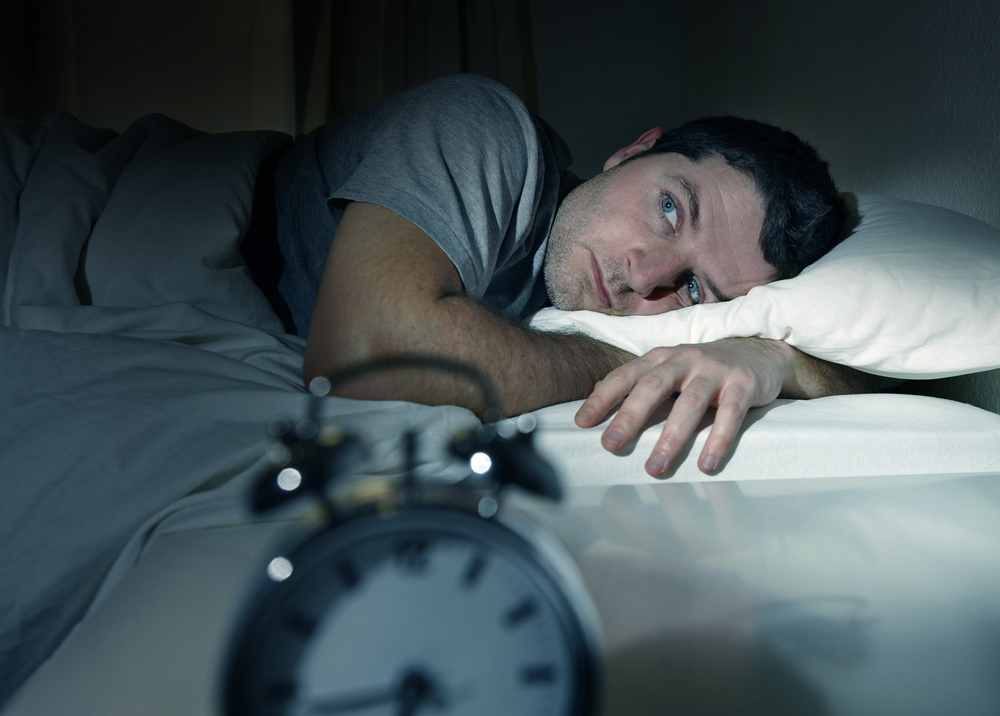Just One Night of Poor Sleep May Add to Weight Gain, Muscle Loss

Skimping on just one night's sleep may have more significant — and immediate — consequences beyond feeling groggy and sluggish the next day. According to a new, small study, when men forgo just one night of their usual amount of sleep, their bodies experience changes that could promote weight gain and muscle loss.
In the study, which was published today (Aug. 22) in the journal Science Advances, the researchers observed changes in the fat and muscle tissue in 15 healthy young men in response to sleep loss.
After the men spent a single night not sleeping, the researchers found indications that fat and muscle responded in opposite ways, said lead study author Dr. Jonathan Cedernaes, a research associate in the Division of Endocrinology at the Northwestern University Feinberg School of Medicine in Chicago. Namely, the body increased its capacity for fat storage, while skeletal muscle tissue showed signs of increasing muscle breakdown.[5 Surprising Sleep Discoveries]
It's not yet clear how quickly these changes in fat and muscle occur when sleep is disrupted, or how they may affect metabolism if sleep loss occurs over a longer period of time than the one night observed in the study, Cedernaes told Live Science. But the changes could help explain why previous studies have shown a link between changes in circadian rhythms and an increased risk of type 2 diabetes and obesity, he said. Circadian rhythm changes can happen, for example, in people who do shift work or those with chronic sleep disruption.
Sleeping in the spotlight
The study took place at a sleep lab at Uppsala University in Sweden, where Cedernaes worked in the Department of Neuroscience. Fifteen healthy young men, with an average age of 22, participated in the research, which involved sleeping in the lab, with blood and tissue samples taken after each night. All of the participants said they normally slept between 7 and 9 hours a night.
So, on the first night of the study, the men got to do just that: They slept in the sleep lab for about 8.5 hours.
But on the second night, the men either got to sleep normally again, or were subjected to "overnight wakefulness," meant to simulate the body's response to shift work or going without sleep. In this scenario, the lights in participants' rooms were kept on all night and the men had to remain in their beds and stay awake for 8.5 hours. Several weeks later, the men returned to the lab for another two nights to repeat the procedure. The only difference was, on the second night, the men who got to sleep normally the first time around were subjected to overnight wakefulness, and vice versa.
Sign up for the Live Science daily newsletter now
Get the world’s most fascinating discoveries delivered straight to your inbox.
When the researchers analyzed the fat and muscle tissue samples taken from the men after the sleepless night, they spotted changes in gene expression and protein levels. These changes provide devidence of increased skeletal muscle breakdown and an increased capacity to hold onto body fat, compared with the normal sleep night, Cedernaes said. (Gene expression refers to whether a gene is turned on or off.)
One of the mechanisms driving the changes that the researchers observed could be fluctuations in the levels of hormones, including cortisol, growth hormone and testosterone, Cedernaes said. Some of these hormonal changes can also lead to shifts in a person's circadian rhythms, which can throw the body's metabolic processes out of whack, he explained.
The findings also revealed that with a short-term loss of sleep, skeletal muscle proteins had a reduced ability to use blood sugar as fuel. This could explain why sleep loss over time may reduce a person's ability to control blood sugar levels, leading to diabetes, Cedernaes said.
Frank Scheer, a neuroscientist and director of the Medical Chronobiology Program at Brigham and Women's Hospital in Boston who was not involved with research, praised the comprehensive analytical techniques used in the study. These provided novel insights into the effects of restricted sleep on muscle mass and fat, he said.
The researchers found changes in genes that affect the circadian clock in muscle and fat, as well as tissue-specific changes in metabolic pathways, Scheer told Live Science.
Future studies are needed to investigate to what degree the observed changes are due to sleep restriction rather than to the men's nighttime light exposure, which can also affect circadian systems in the body, Scheer said.
He noted that the study had limitations. For example, it was a small study that included only young Caucasian men who stayed up all night one time. The findings would also need to be confirmed in women and in people of different ages and races, as well as in obese and diabetic individuals, Scheer said. Similar analytic techniques would also need to be done in people after they'd experienced multiple nights of sleep restriction, he added.
Editor's note: This story was updated at 4:25 pm E.T. on Aug. 23 to include additional information about the study procedure.
Originally published on Live Science.
Cari Nierenberg has been writing about health and wellness topics for online news outlets and print publications for more than two decades. Her work has been published by Live Science, The Washington Post, WebMD, Scientific American, among others. She has a Bachelor of Science degree in nutrition from Cornell University and a Master of Science degree in Nutrition and Communication from Boston University.










